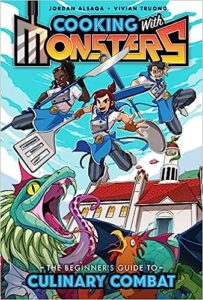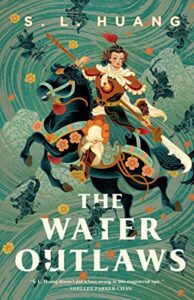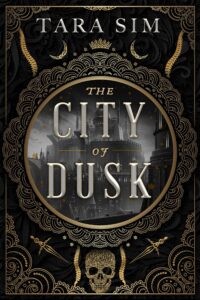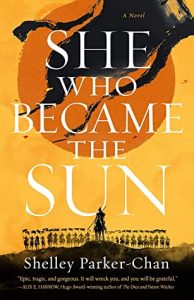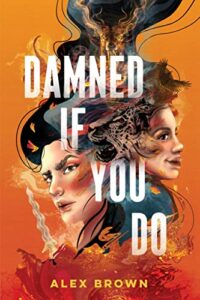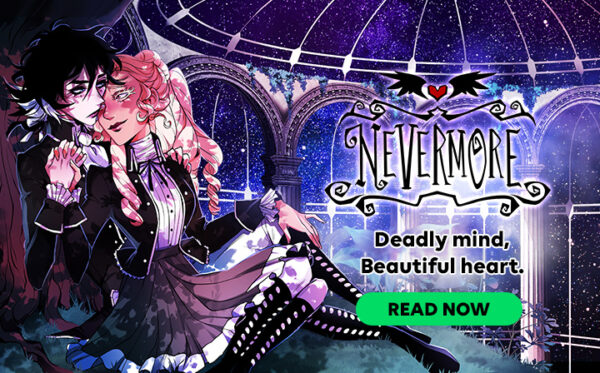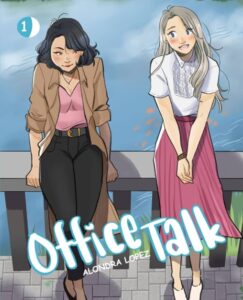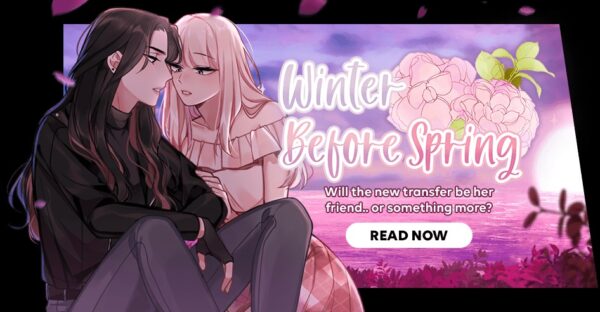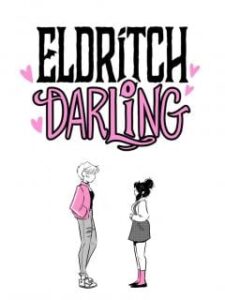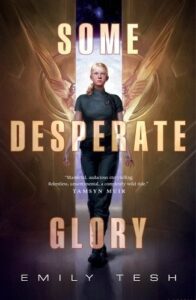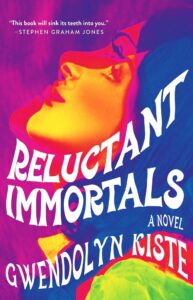Recently, I read and loved Basil and Oregano by Melissa Capriglione, a sapphic YA graphic novel set at a magiculinary school. I am delighted to say that Cooking with Monsters—one of my most-anticipated books of the year—is also a sapphic YA graphic novel set at a fantasy cooking school. In this case, though, cooking is only one half of the challenge. Just as important is the students’ ability to fight monsters, which they will then prepare as gourmet meals.
This was such a delight to read, and I can’t wait for volume two. This book establishes a diverse cast of characters and their relationships with each other, as well as the basics of how training happens at Gourmand School of Culinary Combat.
The main character is Hana. When she was a kid, her and her best friend Bobby were rescued from a monster by a warrior chef, and ever since, it’s been her dream to become a warrior chef herself. Now Hana and Bobby are both starting their first year. The cast is rounded out by Hana and Bobby’s roommates as well as Hana’s love interest and academic rival, Olivia.
While Hana is immediately smitten with Olivia, after a promising introduction, they quickly get off on the wrong foot. Hana is disappointed that her hero isn’t the one to mentor her, while Olivia is resentful that Hana doesn’t appreciate the mentor she does have: Chef Graham. Unbeknownst to Hana, Chef Graham is Olivia’s grandfather, and he swore he’d never take on another student. Olivia is hurt that he’d decide to train Hana over her. This initial misstep spirals into more rivalry and miscommunication between them. Meanwhile, Bobby is becoming closer with Olivia and he and Hana are drifting apart.
While I felt like the beginning of this volume was a little bumpy, I was soon pulled into this world and the well-rounded characters. First of all, there are the monsters, which are all part animal and part food (think Mooseshrooms, which grow mushroom from their antlers). Some are violent and are defeated through combat. Others are cared for, with their fruits responsibly harvested. They’re such a fun visual element.
I mentioned already the diversity of the cast, but that really is woven into the story. Hana and Bobby are coded Japanese and Vietnamese, and they face racism and anti-immigrant sentiments from some people in their community—including a second year student who used to harass them. Olivia is Black. One side character is nonbinary, and another is a trans man with top surgery scars. I often lose track of a long list of characters, but each of them is distinct in both design and personality.
It’s this group of characters that, alongside the monsters, is the main strength of the graphic novel. I can definitely see how this can support a whole series, because I’m intrigued by even the characters we’ve only seen briefly. We’ve also gotten a look into Hana’s own weaknesses she has to overcome in her training, and I look forward to seeing what subsequent years are like at the academy!
This definitely lived up to my (high) expectations, and as I just keep saying in this review, I can’t wait for volume two to come out!

